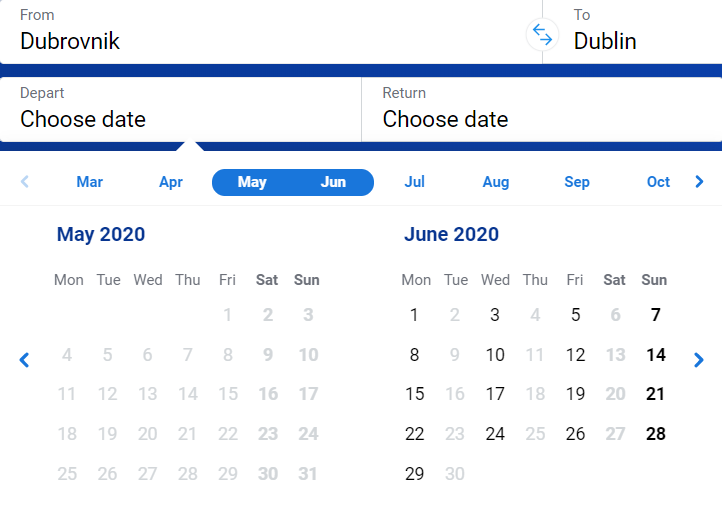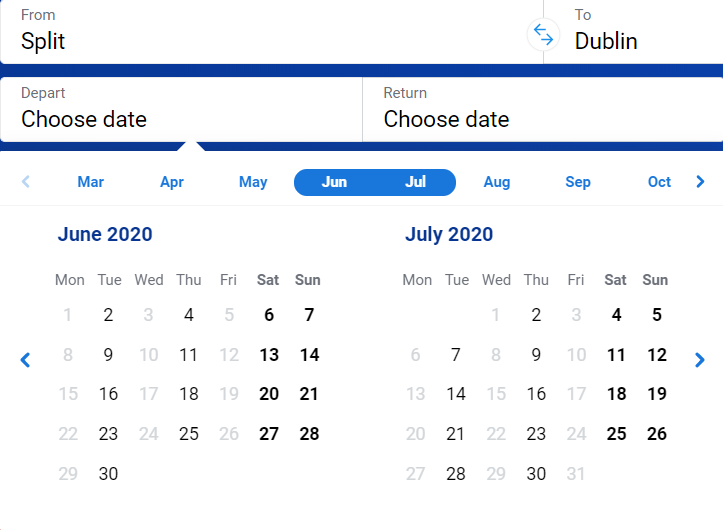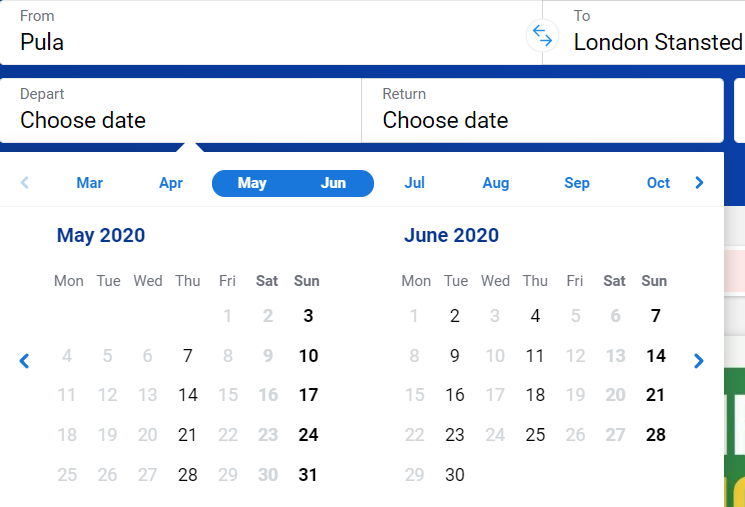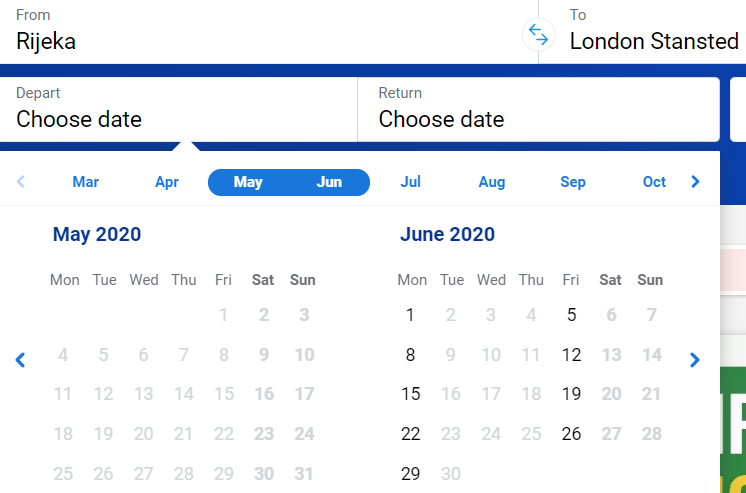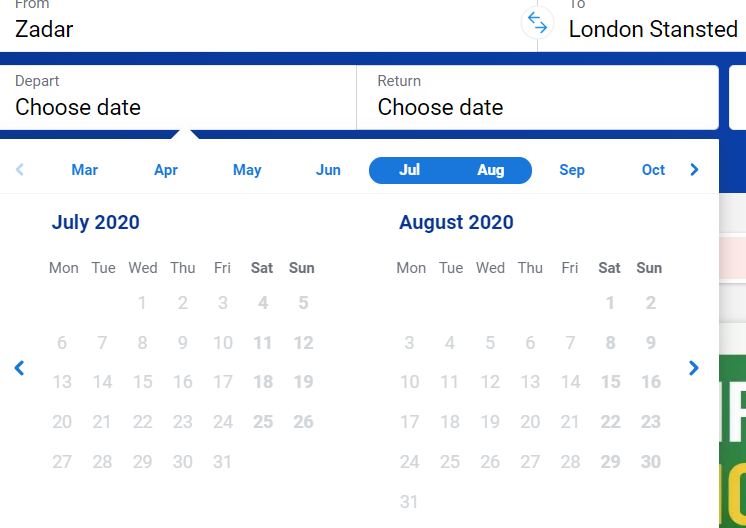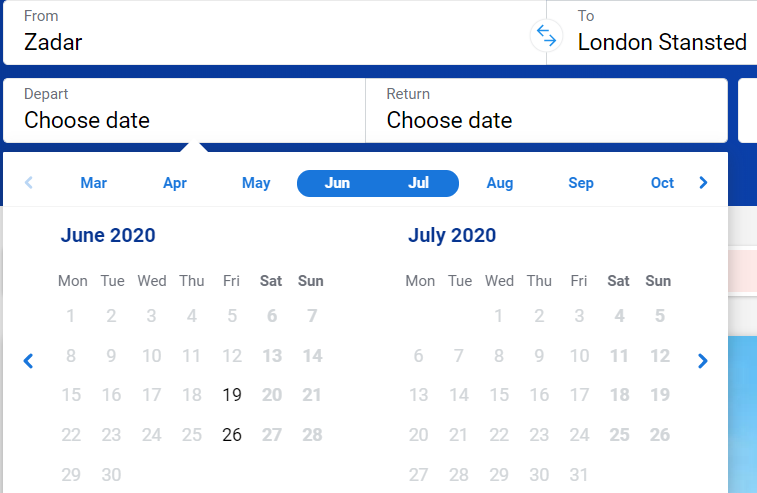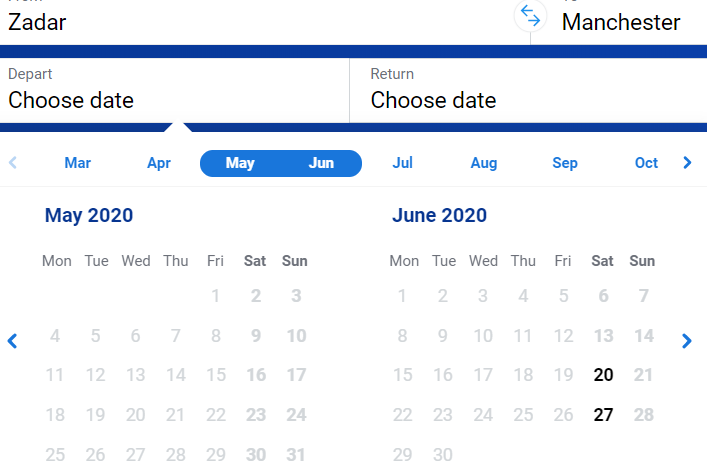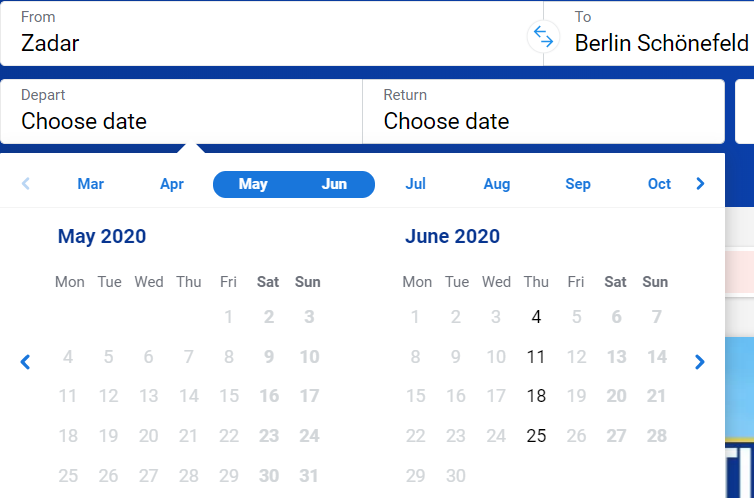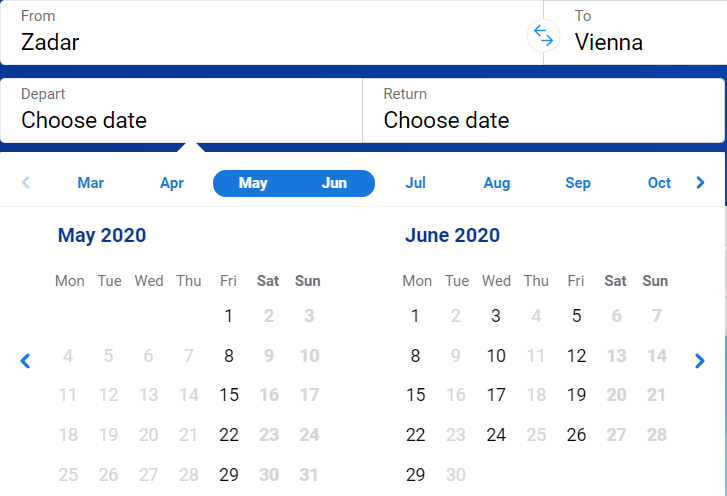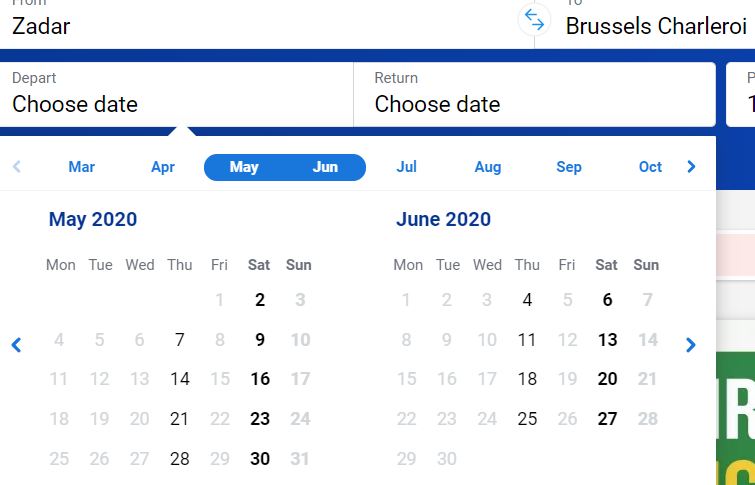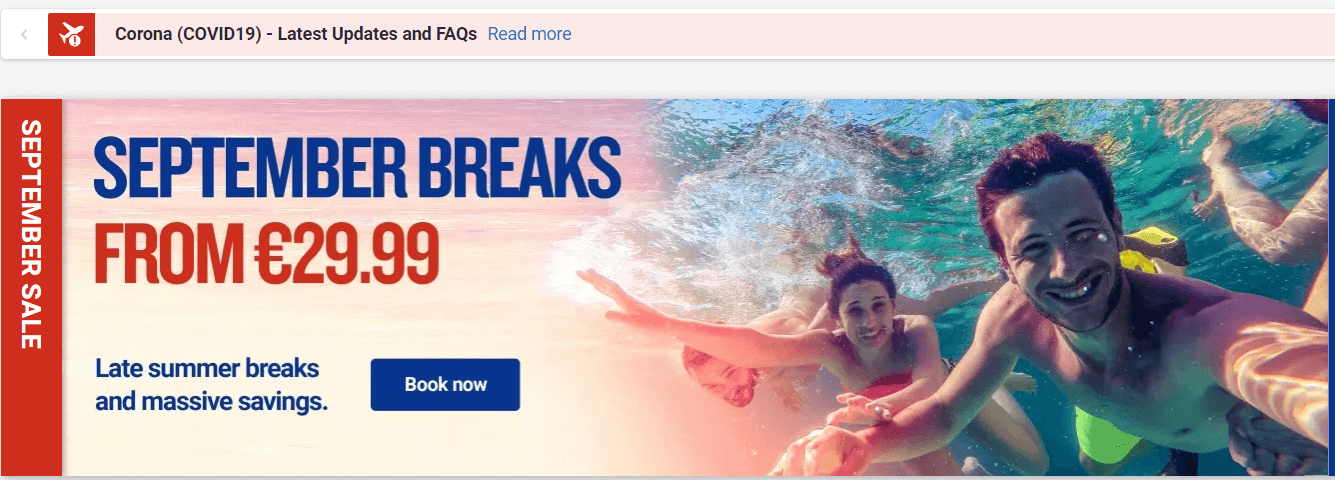How Much Did Market Value Decrease for Players in Croatian First League?
April 12, 2020 - How has the market value dropped for players of Dinamo, Rijeka, Hajduk, and Osijek? A look at the player value of the Croatian First League from the beginning of March to present.
Index.hr reports that the coronavirus pandemic has caused a decline in market value for all footballers. This situation was expected, however, because the sport has been paralyzed, competitions have been suspended or postponed, and the deadlines are still in question.
Transfermarkt, the world's most popular football transfer site, has announced that the market value of all players born before January 1, 1998, is down 20 percent, while those born after that date are down 10 percent.
So, how has the market value dropped for players of Dinamo, Rijeka, Hajduk, and Osijek? A comparison from the beginning of March to the present.
The biggest decrease was recorded for Dinamo's Bruno Petkovic and Dominic Livakovic, both of whom dropped 2.5 million euro. However, they remain at the top of the most expensive Croatian championship players.
Namely, before the pandemic, Petkovic was worth 13.5 million euro, while Livakovic was worth 13 million euro. They were accompanied by Mislav Oršić, whose market value was 9.5 million euro. Petkovic is now worth 11 million, Livakovic 10.5, and Orsic is estimated at 7.5 million euro, enough to keep him in third place.
With the example of Petkovic, Livakovic and Orsic, it is easy to conclude that Dinamo's market value has dropped the most, but it is not difficult to assume that the current Croatian champion still holds the most expensive lineup in the Championship.
Dinamo's players had totaled 97 million euro, and their total value now stands at 79.4 million euro, down 18.2 percent.
The coronavirus price drop has has hit Dinamo's Izet Hajrovic the hardest, whose value has been falling since last summer. In July, Hajrovic was worth 3 million euro, and today, his price is only 1.2 million euro. This is a staggering 60 percent drop. He was worth 1.5 million euro before the pandemic.
The overall value of Hajduk players fell by 17.2 percent. Hajduk players were worth 24 million euro, while their value now is 20 million euro.
Hajduk's most expensive player remains Mijo Caktaš, who was worth 3.5 million euro and is now estimated at 2.8 million euro. The price for Josip Juranovic fell half a million euro, and he is now worth two million euro. Brazilian Jairo also dropped by half a million euro, too, and is now worth 1.6 million euro.
A drop similar to Hajduk's was also recorded by Rijeka, whose team was worth 20.5 million euro before the pandemic, and is now worth 16.9 million euro, which is down 17.6 percent.
The price of Antonio Colak from Rijeka dropped from 3 million euro to 2.4 million euro. The value of his teammates Alexander Gorgon and Franko Andrijasevic is now worth 1.6 million euro each, down by 400,000 euro each.
It is impossible to say for the time being if there will be any further reductions in the football market soon, but it is evident that these declines are significant, considering the total sum of all Croatian First League players dropped by 16.3 percent, or from 226.6 million to 189.7 million euro.
This is a decrease of 36 million euro, which is almost equal to the current market value of players from Hajduk and Rijeka, amounting to 36.9 million euro.
Dinamo
Dominik Livakovic - €10.5 million (€13.5 million)
Danijel Zagorac - €475,000 (€600,000)
Dino Peric - €4.8 million (€6 million)
Kevin Theophile Catherine - €4 million (€5 million)
Emir Dilaver - €3.2 million (€4 million)
Josko Gvardiol - €1.3 million (€1.5 million)
Francois Moubandje - €1.6 million (€2 million)
Marin Leovac - €725,000 (€900,000)
Petar Stojanovic - €1.2 million (€1.5 million)
Sadegh Moharrami - €600,000 (€750,000)
Nikola Moro - €5.8 million (€6.5 million)
Arian Ademi - €7 million (€5 million)
Marko Djira - €1.3 million (€1.5 million)
Amer Gojak - €7 million (€5.5 million)
Luka Ivanusec - €3.6 million (€4 million)
Lovro Mayer - €2.3 million (€2.5 million)
Mislav Oršić - €7.5 million (€9.5 million)
Antonio Marin - €1.3 million (€1.5 million)
Damian Kadzior - €2.4 million (€3 million)
Izet Hajrovic - €1.2 million (€1.5 million)
Bruno Petkovic - €13.5 million (€11 million)
Mario Gavranovic - €1.6 million (€2 million)
Sandro Kulenovic - €1.3 million (€1.5 million)
Mario Ćuže - €775,000 (€850,000)
Hajduk
Josip Posavec - €1 million (€1.3 million)
Marin Ljubić - €600,000 (€750,000)
Goran Blažević - €50,000 (€50,000)
Stefan Simić - €800,000 (€1 million)
Ardian Ismajli - €800,000 (€1 million)
Nihad Mujakic - €800,000 (€750,000)
Mario Vuskovic - €600,000 (€525,000)
Kristian Dimitrov - €400,000 (€500,000)
Stipe Vucur - €300,000 (€350,000)
Stipe Radic - €100,000
David Colina - €900,000 (€1 million)
Josip Juranovic - €2 million (€ 2.5 million)
Josip Bašić - €150,000
Darko Nejašmić - €1.8 million (€2 million)
Stanko Juric - €750,000 (€900,000)
Mijo Caktas - €2.7 million (€3.5 million)
Hamza Barry - €800,000 (€1 million)
Bassel Jradi - €800,000 (€1 million)
Jakov Blagaić - €300,000
Loen Krekovic - €50,000
Jairo da Silva - €1.6 million (€2 million)
Ivan Dolček - €450,000 (€500,000)
Samuel Eduok - €1.6 million (€2 million)
Francesco Tahiraj - €300,000 (€450,000)
Marin Jakoliš - €400,000 (€500,000)
Rijeka
Andrej Prskalo - €400,000 (€500,000)
David Nwolokor - €250,000
Ivor Pandur - €250,000 (€150,000)
Hrvoje Smolčić - €750,000 (€850,000)
Nino Galovic - €600,000 (€750,000)
Joao Escoval - €400,000 (€500,000)
Darko Velkovski - €400,000 (€500,000)
Jasmin Celikovic - €150,000 (€200,000)
Daniel Stefulj - €300,000 (€250,000)
Muhammad Kabiru - €50,000
Ivan Tomečak - €550,000 (€750,000)
Momcilo Raspopovic - €475,000 (€600,000)
Ivan Lepinjica - €900,000 (€1 million)
Luka Capan - €525,000 (€650,000)
Domagoj Pavicic - €1.2 million (€1.5 million)
Stjepan Loncar - €1.2 million (€1.5 million)
Franko Andrijasevic - €1.6 million (€2 million)
Tibor Halilovic - €800,000 (€1 million)
Dani Iglesias - €250,000 (€350,000)
Alexander Gorgon - €1.6 million (€2 million)
Felipe Pires - €750,000 (€900,000)
Robert Muric - €750,000 (€900,000)
Antonio Colak - €2.4 million (€3 million)
Sterling Yateke - €300,000
Osijek
Ivica Ivusic - €650,000 (€800,000)
Marko Malenica - €600,000 (€750,000)
Mile Skoric - €1.4 million (€1.8 million)
Ante Majstorovic - €1.2 million (€1.5 million)
Guti - €525,000 (€650,000)
Danijel Loncar - €300,000 (€400,000)
Talys - €675,000 (€750,000)
Igor Silva - €650,000 (€800,000)
Alen Grgić - €550,000 (€700,000)
Tomislav Sorsa - €150,000 (€250,000)
Mihael Žaper - €900,000 (€1 million)
Vedran Jugovic - €350,000 (€450,000)
Laszlo Kleinheisler - €1.4 million (€1.7 million)
Marin Pilj - €400,000 (€500,000)
Karlo Kamenar - €300,000
Dmytro Lopa - €300,000 (€350,000)
Petar Bockaj - €675,000 (€850,000)
Marveil Ndockyt - €575,000 (€650,000)
Eros Grezda - €1.1 million (€1.35 million)
Josip Špoljarić - €300,000 (€350,000)
Mirko Maric - €3.2 million (€4 million)
Antonio Mance - €1 million (€1.3 million)
Jerry Mbakogu - €400,000 (€500,000)
To read more about sport in Croatia, follow TCN's dedicated page.
Will Croatian Football Survive Corona? Damir Miskovic of HNK Rijeka Weighs In
April 10, 2020 - Damir Miskovic, the owner and president of HNK Rijeka, talks about the realities of Croatian football after the coronavirus.
Nearly one month has passed since almost all sports competitions have stopped around the world. The coronavirus pandemic has changed the world as we know it; it has not only stopped sports, but many other branches, and the real consequences of it are yet to come. Sports will be one of the hardest hit.
This is illustrated by the fact that clubs around the world are laying off, or at least furloughing many employees and reducing player wages. Without matches, there is no income, and without income, there is no money to pay off contractual obligations.
If they are already doing this in some of the world's biggest and richest clubs, why would it be any different in Croatia?
Damir Mišković, president of HNK Rijeka, who has been pumping his money into the club for years, tried to explain in an interview with Index.hr that this is a narrow view of the current situation and that the consequences of this pandemic will be more far-reaching than what is seen at the moment.
Why was cutting wages in Rijeka necessary?
"Cutting is an ugly word; I would say we pulled specific measures in a specific situation. We need to understand that the economy of the world in all segments, including sports, will get other dimensions, whether we like it or not. I'm always optimistic, and when I say something pessimistic, I am realistic. This is just the beginning of a major crisis in the world that will lead to a major crisis in sports, both in Croatia and in the world. Who will think of athletes when people who own businesses have to quit?"
What did the first team players conclude at a recent meeting regarding this situation, when the proposal to reanimate the First Team Association was rejected?
"We will have a lot to change in the next 2-3 years. All the HNL clubs were talking about this 3-4 weeks ago. Maybe some didn't understand the gravity of the situation, but now they understand it. We come up with common proposals, but then each club has a specific situation. We have come to an agreement that we need to see how much money anyone will need at their financial level to endure a year, because if some fail, we will not have a League. To say the least, in Inter or Varaždin, a salary of 2000 kuna is a lot, with us it is 2000 euros, a maximum of five or seven thousand, depending on the contract. We talked about it. Now Fifa has helped us too, because if we can't pay the players, we can only give them the papers, because everyone has the right to ask for what the contract should be."
What consequences will the clubs feel in the long run?
"I find it funny when someone says that football is losing nothing. It loses by not playing, that’s number one. Rijeka has enough fans; we have about 5500 regular spectators. When they come, there are more sponsors. If the players do not play, they cannot even show themselves and thus sell themselves, or they can be sold for less money. And our clubs live on sales and that is 80% of their revenue, in fact, the only normal income.
The crisis is already felt, most of the sponsors, big or small, are gone, and that money has paid some expenses, whether it be the working community, electricity, water, mowing the grass... Well, the sponsor who gives you beer in the stadium no longer works. When a small club comes to Dinamo or Hajduk, they earn a month's salary. Additionally, if the season continues, say, in June, players will have about three weeks of preparation after doing nothing for two months. My coaches tell me this is impossible. There will certainly be more injuries that will not allow players to be sold again."
Can the situation in the HNL be compared to that in the stronger leagues?
"We like to watch Barcelona, but we have a lot less to measure. We have to watch our league as it is, and it's much better than it was eight years ago when I came.
I have contacts with people, presidents or directors of the clubs in the League; they are not even thinking about buying or selling today, as rich as they are, just looking at cutting costs and surviving the next year or two."
And how to survive?
"If we tighten the belt and hold it for 10 months, things might get better. If not, we will all sit down together, have a drink, have fun, and go our own way. It will be one hell of a year. People won't have tickets. TV rights? Who will pay for the packages to watch the matches? I'm covered with these measures for the next six months, some clubs will have them in three months, some only for a month, and then what? We all need to survive together, so it will be easy to argue again whether it was offside or not."
Could Croatian football be helped today by the First League Association, called by some?
"It's been four years and what have we done? We did not agree on the ball, joint jersey manufacturers, TV rights, sponsors, nothing. We would be in Zagreb, having lunch together and we did nothing.
If you ask me if we need the First League Association, yes, we do. But it's like the Opatija Initiative, three years ago when we put together a proposal for the systematic financing of sports from TV rights, bookmakers... competition. We would cover 260,000 athletes in Croatia, each sport would have its own representative, and below would be separate bodies, this is how it works. We did the distribution by sports and by clubs, everything was included. To bring together 5-6 trophy sports, so which would be a bigger force in negotiating with sponsors or on TV rights?
But for starters, all football clubs and their representatives, through the HNS Commission with Mr Markulin at the helm, need to talk and come up with models and show that we are able to find sponsors and that we can have an association that produces money for clubs."
If everything goes back to normal, how can you better sell your Croatian football product in the future?
"There are about 160,000 subscribers to HNL channels in Croatia. And where are those pirating? To regulate this would be three times the number of subscribers. Cafes pay the same subscription as individuals, filling 50 seats during a match and everyone watching football for the price of one. They may not have to pay 50 times more, but five times more would be a major shift.
We also get nothing from bookmakers. If someone is watching us and betting on our matches, where is our share?
Furthermore, how many tourists, visiting fans, come to European matches? How many hotels do they get extra nights? We bring thousands of tourists, yet we still have to pay various taxes and surtaxes.
We need to understand that sport is not a profitable branch. Players earn, managers earn, but clubs do not. Sport should be cultivated for people to do sports instead of nonsense, but there is no income there."
How would you comment on the government measures taken today to assist sports associations and clubs in the wake of the corona crisis?
"NK Rijeka is not entitled to benefits for the working community because the City of Rijeka has a 30% stake in the club, but I have to praise the Sports Office for having done this, no one has bothered so much, and that is a step."
To read more about sport in Croatia, follow TCN's dedicated page.
Croatian Libraries Bringing Collections to Your Home with E-Books
March 28, 2020 - Croatian libraries may have closed their doors, but that doesn’t mean you have to stop reading. A look at the e-book collections available around Croatia.
Looking for more ways to pass the time at home? Croatian libraries have you covered. While their doors may be closed during the coronavirus crisis in Croatia, you can still explore a variety of book collections from the comfort of your home, thanks to the e-books made available.
Here’s a look a part of the offer in Croatia’s three largest cities - Zagreb, Split, and Rijeka.
Zagreb
The National and University Library in Zagreb is allowing everyone interested in heritage and collections of other heritage institutions in Croatia to explore exhibitions as part of the Library’s online exhibitions portal. Three of the exhibitions are available in English (Croatian Glagolitic Heritage, Marko Marulić and Faust Vrančić) and one in German (Marko Marulić).
“The exhibitions present valuable digitised heritage using an interactive approach, while their varied dynamic additional content, such as quizzes and jigsaw puzzles, is aimed at bringing that heritage closer to younger generations. Coordinated by the Library’s Croatian Digital Library Development Division, operating as part of the Croatian Institute for Librarianship, several Library’s departments participate in the preparation of the exhibitions. Technical support is provided by the Library’s IT Department, and, as of recently, the Blue Factory IT company, participating as an outside collaborator,” the National and University Library said on its website.
You can also find a list of digital collections, from old Croatian journals to historic newspapers here. Visit the National and University Library website.
Split
The Marko Marulic Split City Library has recently introduced e-books, making it easy for users to read while library departments are closed.
Those interested will have to download the mobile app ZaKi Book, which is available for free download through the Google Play, Apple store and Microsoft store online. Reading is thus available on Android, iOs and Windows 10 devices.
The application is logged in with a membership number and PIN.
Users can borrow the e-book for 21 days, without the possibility to extend. A member has the right to rent two titles at a time, or a maximum of five titles within one calendar month. The e-books can be read on four devices at a time.
If you do not have a PIN, please contact GKMM by email: This email address is being protected from spambots. You need JavaScript enabled to view it., send your first name, last name and ID number and you will receive it as soon as possible. Visit the Marko Marulic Library website.
Rijeka
While measures are underway to protect and prevent the spread of coronaviruses, the Rijeka City Library is closed until April 14. But thanks to modern technology, library users can also rent books through the ZaKi Book app. There are more than 700 titles available, and there are currently 587 members using the application. The City Library also reports that 1,236 rentals have been made so far: in January 214, in February 446, and in March, for the time being, 576.
The five most-read e-books so far are: "The Highly Sensitive Person: How to Recognize, Understand, and Use the Gift of High Sensitivity" by Elaine A. Aaron, "A Gentleman in Moscow" by Amor Towles, "My Not-So-Perfect Life" by Sophie Kinsela, "Anatomy of Love: A Natural History of Mating, Marriage, and Why We Stray" by Helen Fisher and "20 Steps Forward" by Jorge Bucay. As the director Niko Cvjetkovic pointed out, the Rijeka librarians are active on the web and have prepared a list of recommendations for journalism and fiction, reports Novi List.
Visit the Rijeka City Library website.
To read more about lifestyle in Croatia, follow TCN's dedicated page.
Ryanair in Croatia: Almost Total Zadar 2020 Flight Cancellations But Split, Dubrovnik OK?
March 21, 2020 - What is happening with Ryanair in Croatia? So many flight cancellations to Zadar, but not other coastal destinations. And what about the Hideout Festival?
The situation regarding flights with Ryanair in Croatia has been taking up an ever larger part of my inbox in recent times. Emails such as this have become commonplace:
Any clue why ryanair flights to zadar in june and july got cancelled overnight? Theres still several months to go... Any advice you could provide is greatly appreciated
Hvala puno!
I decided to look into the situation, and what I found was VERY unusual.
The announcement that Ryanair is grounding most of its fleet on March 24 due to the coronavirus situation was a big shock, but there seems to be an interesting sub-story developing with Ryanair in Croatia.
We have covered flight cancellations with Ryanair in Croatia already due to COVID-19, and the flight situation has been constantly updated in our regular Croatian travel advice - here is today's.
This was followed on March 13, 2020 that Ryanair was postponing its planned base in Zadar until 2021, as well as cancelling lots (but not all flights).
With the global situation, it is understandable that Ryanair in Croatia would be operating at reduced capacity, but cancelling flights in July? It seemed a little odd to me.
"Given the overall situation, it is quite certain that the flying season will not start as planned. When it will start, it is difficult to estimate at the moment, which is why Zadar Airport is unfortunately forced to postpone hiring of our seasonal staff until further notice," Zadar Airport spokesperson Nikola Barac told Zadarski List when sent a seasonal employment media request. This has resulted in the postponement of the recruitment of 130 seasonal staff at Zadar Airport.
Asking around, I was told that ALL flights to Zadar with Ryanair were cancelled by local sources. Really? I found that quite incredible to believe. What I found was all the more bizarre, according to the online booking system on the Ryanair website.
Zadar is the main market for Ryanair in Croatia, indeed it was the entry point for low-cost flights when the Irish carrier entered the Croatian market in 2007. But Ryanair has expanded to other airports, albeit with more limited services. Dublin to Dubrovnik looks fine at the moment from June 1.
As does Dublin to Split. Ryanair started flights to both Split and Dubrovnik only last year and currently offer only Dublin to both, as well as Vienna to Dubrovnik, and Stuttgart to Split.
Things are looking good from London Stansted to Pula from early May.
And from London Stansted to Rijeka from June 1.
But London Stansted to Zadar in July and August?
In fact, there are only two flights currently bookable from London Stansted to Zadar for the whole of 2020.
What about flights to Zadar for the Hideout Festival on Zrce on June 21-25, 2020?
The Hideout Festival on Zrce Beach near Novalja on the island of Pag is scheduled to take place from June 21-25, 2020, coinciding with the only bookable flights from London to Zadar with Ryanair for the whole year.
Same story if you are coming from Manchester. Currently, the only two flights available for the whole of 2020 are dates either side of the Hideout Festival.
But if you are planning to visit Zadar from mainland Europe with Ryanair, there seems to be no problem. From Berlin, above, for example.
The Viennese can arrive from May 1, 2020.
And from Brussels, just a day later.
But from the UK, or Ireland - nothing currently whatsoever, apart from the Hideout Festival flights.
And of course, the big question is - when will this COVID-19 crisis all be over, and when will flights to Croatia resume?
Nobody knows for sure, of course, but perhaps there is a clue on the Ryanair homepage of one of the movers and shakers of European travel, with their most prominent advert, below.
If anybody has any concrete information with verifiable links to support the info, please contact me at This email address is being protected from spambots. You need JavaScript enabled to view it. Subject Ryanair, and I will happily update.
How do I get a Ryanair refund?
This is a question I am getting a lot as well, and I am certainly not the best person to ask. It will involve filling in a Ryanair refund form, but for the latest information, check out the COVID-19 update page on the Ryanair website, which has the latest on refunds and disruptions.
You can keep track of the latest Croatia travel advice as part of TCN's ongoing coronavirus coverage in our dedicated section.
Morning Poetry, Fairy Tales, Ballet: HNK Ivan pl. Zajc Rijeka Launches Online Program
March 20, 2020 - HNK Ivan pl. Zajc Rijeka reacts to the coronavirus crisis with an online program.
The Croatian National Theatre in Rijeka won’t let the corona crisis take them down, and instead has reacted with an online program including morning poetry, ballet, and fairy tales at bedtime.
HNK Ivan pl. Zajc Rijeka writes in full:
"In the circumstances of the crisis caused by the coronavirus pandemic, the Rijeka Theater decided to act responsibly and in solidarity with its audience, citizens of Rijeka and the wider community, especially those most vulnerable, either because of their age or because they are on the front line of defense against the COVID-19.
As is well known, the theater is unimaginable without the public gathering of a large number of people, and in essence, theater is social contact and collective experience of a theater act, which is why we had to cancel our programs among the first.
Also, due to the specificity of the theater work, some of our ensembles cannot continue their regular and usual work, because their action and creation involve gathering more people(orchestra, choir) and physical contact (ballet ensemble).
Nevertheless, we decided, until all the work in public institutions was banned, to reorganize and harness all our creativity so that we could continue to work and act responsibly and in solidarity. Therefore, we announce that we are creating a program called “Zajc with You" that will be available through Youtube and social networks.
From Friday, March 20, as long as we are allowed to work, "Zajc" begins with its online program of the following content and schedule:
1. Morning selfie poetry
At 8 am every morning, one actor in Croatian or Italian drama will read poetry for you. One song every morning!
2. Aria at noon
Every day at noon, the soloist of our opera ensemble will perform one aria with personal dedication.
3. “Zajc with you" - fairy tales for bedtime
Actors of Croatian and Italian Drama will tell your children a bedtime story at 8 pm every night.
4. Ballet insomnia
In the evening, at 10 pm, the program “Zajc with you" will be concluded with a short dance video: ballet practice, solo, choreographic fragments ...
Of course, during our online presence, all non-at-risk Theater employees work from home or in the Theater building, respecting all security measures, and are preparing a program to start as soon as we are allowed to open our doors to our audience. All employees are ready to extend the duration of this and start the new theater season early, all in order to realize all of the planned program this year. "Zajc" is a theater that has always been and will be here because of the citizens of Rijeka. Because a city without Theater is like a city without identity. A city without a theater is not really a city.
All information about canceled performances that were on sale can be obtained at the box office (tel. 051 / 337-114, e-mail: This email address is being protected from spambots. You need JavaScript enabled to view it.). For most programs, we already offer replacement dates in May, June and July, and if the offered replacement terms do not match or do not exist, you can earn a refund for tickets purchased by April 14 at the box office.
Box office hours: Monday to Friday 9 am - 3 pm, and Saturday 9 am - 1 pm."
To read more about lifestyle in Croatia, follow TCN's dedicated page.
Reviving Rijeka Shipbuilding: Scenic Group Boss on 860 Million Euro Deal
Ship Builders
While this boat was being built, the Pula shipyard Uljanik was already in serious trouble, but Moroney wouldn’t give up. He took over the boat and his engineering team, with the team of around 600 subcontractors, and he managed to finish this extremely sophisticated and expensive ship. Its sister ship Eclipse II, an even more perfect version, should be built in Rijeka, in the 3. Maj shipyard, and works should start before this summer. It will be built by the Scenic Group company just registered in Croatia, MKM Yachts, and the Rijeka shipyard will be a subcontractor. That’s very similar to the model Moroney was forced to implement in Uljanik, but it’s also the model he uses to build his smaller and simpler ships in Asian shipyards.
- We’re becoming a shipyard, and not just shipowners in Scenic, and that’s a process that happened progressively, it lasted for years. During that time we managed to create a core base of people, engineers, designer knowledge and experience, so now we can manage the entire process of the creation of our unique ships. When we started building our own fleet of river cruise ships, back in 2007, what the European shipyards had to offer was not compliant with our ideas and what we wanted to highlight and offer on the cruising market. That’s how we started developing our own projects for ships and then letting other shipyards build them for us. We built 20 river cruise ships in Europe, and in 2014, in Asia, Vietnam we started building our own ships. The local shipyard performed the steelworks, and then we and our other subcontractors furnished and completed the ship. We have built three ships until now in Asia and they’re beautiful, built according to all European standards and with a lot of equipment, Moroney explained why he decided to go into the adventure of building ships, in addition to it, obviously, being a cheaper solution.
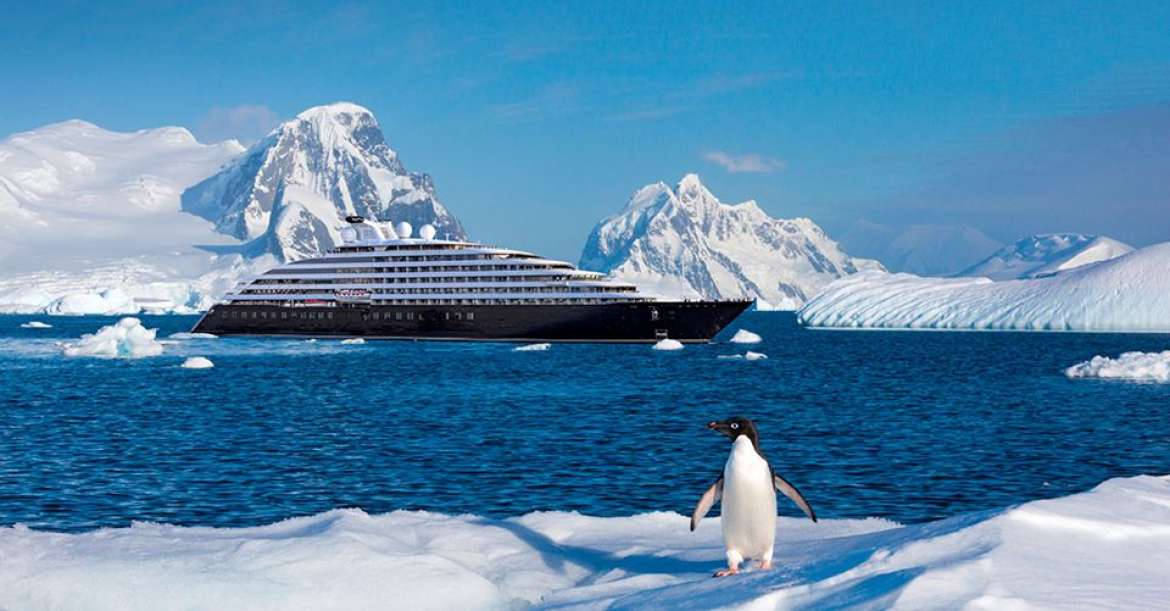
One thing we know about the cruise ships you plan to build in 3. Maj is that there will be five in total, although some people mention six, and the first one of them will be a copy of the one you built in Pula. Not much is known about the other four.
- You need to understand that I can’t go into too many details, because of the competition on the market. I can confirm we’re talking about five ships for now, with the total value of around 860 million euros, and we’ve also made public that we’re going into the building of Scenic Eclipse II, for which the keel will be laid soon in Rijeka shipyard. As far as the other four ships are concerned, I can tell you that they’re in various stages of designing, they will resemble Eclipse in a way, however still adjusted to the specific niches of the cruising market we’re targeting. They will all be furnished according to the highest standards, so we’re talking about six stars, and their class will allow them to cruise in the polar regions as well.
A painful experience
What makes you think you won’t go through the same thing in ‘3. Maj’ as you did in Uljanik, which delivered Eclipse over a year late?
- Our experience in Uljanik was very painful and it cost us a lot of money, however, we learned a lot through it. I dare say that during the twelve months it took to complete the Scenic Eclipse, and we’re talking about one of the most complicated passenger ships ever built in the world, we compressed the experience which the shipyard acquired in the last more than twenty years. What we went through in Uljanik made me firm in my opinion never to sign another contract again unless we have control over the project. In this project, Scenic will be managing the entire process, and 3. Maj will be our subcontractor for the building of the ship and equipping it on the slipway. I’m certain it will allow for the optimal combination of the two complementary sets of knowledge, as the shipyard will do what they’re best at and what they do great, which is building the keel and the basic equipment while the ship is on the slipway.
Our part of it, what we do best, is the final furnishing, the luxurious part of the ship, the entire interior of the ship, finishing the details. You know, we started in Pula with 2 workers, we needed ten at most, had everything gone as it should have and if the shipyard wasn’t heading to bankruptcy. In the end, our team grew to a hundred people, with highly specific knowledge and engineers who coordinated and managed around 600 subcontractors. And those people, and most of them are still with us, are the reason why I believe we shouldn’t have any problem building Eclipse II in the Rijeka shipyard. In the last seven, eight months we’ve been through each piece of the project documentation, each piece of the Eclipse, to make sure the building of the second ship will go smoothly.
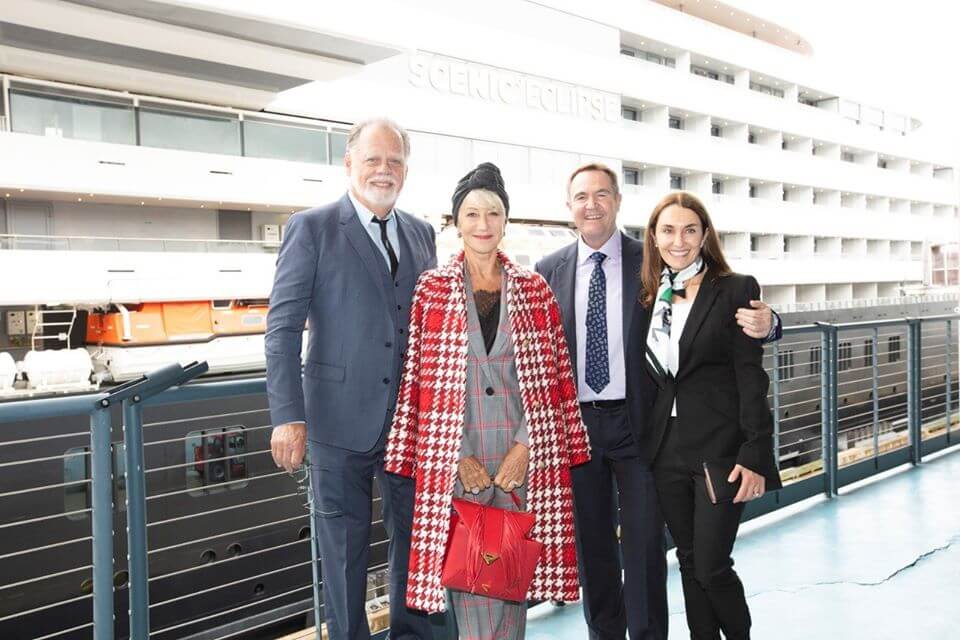
(The Moroneys with Dame Helen Mirren, Godmother of Scenic Eclipse)
Will this final furnishing of the ship also require additional help from the 3. Maj workers?
- Of course. There will be opportunities for everyone doing good and competitive work.
Many people see you as a new strategic partner in 3. Maj. Is that what you’re considering, becoming the owner of the shipyard?
- The fact is, with this project for the building of five cruise ships, we’ve already become a strategic partner to 3. Maj. However, it’s too soon to say anything more. We’ll see. There are many things that need to be done and put in order in the shipyard for the conversations to go that way. There’s no way to avoid the fact that 3. Maj hasn’t worked and hasn’t been operational for over a year, and it’s not working at full capacity now either. To be able to move on, the shipyard needs to finish the existing new ships because that’s what got them the credit lines, then our building needs to start, and it’s certain they need to invest into modernisation. Let’s just take it one step at a time and see where that takes us. Let’s be real, shipbuilding and cooperation is basically gone in this region. With our two boats, which is how much we plan to work on at the same time, it’s hard to see the full rehabilitation of the former capacities of 3. Maj. However, if we manage to create a pool of specialized producers with the most recent know-how and technology in the Rijeka area in the next few years, in synergy with the Italian shipyards we’ll have a healthy core and then anything is possible. The biggest shipyard and the world number one when it comes to building cruise ships, Fincantieri is just three hours away, and I see that as one of the key advantages of Croatia and 3. Maj. All their producers and subcontractors are also within two or three hours from Rijeka. That’s an advantage that needs to be exploited.
You asked for and received government guarantees from the Croatian Government for those five cruise ships. You must be aware that the Croatian taxpayers have opposing opinions on how much the state should intervene into shipbuilding.
- We’ve had numerous meetings about that in the Government, I’ve met with PM Plenković personally four times, and in each of those meetings, he actively promoted the survival of shipbuilding, however making it clear that the Croatian state budget can’t take the burden. I want to make it clear that our Scenic Eclipse in Uljanik didn’t cost Croatian taxpayers anything, even though we had the government guarantees. We didn’t activate them, and I think it’s one of the reasons why we were in the position to negotiate this deal. We got the new guarantee because in this case, we are investing more, we are investing first and our risk is much larger. This is not about the counter-guarantee, because the government guarantee is not given to us, rather to the bank for the credit line to build the cruise ship. I mention that because when we made the deal with Uljanik, all of our payments to Uljanik were covered by the government with counter-guarantees. As a shipowner in Uljanik I had no risk, and neither did the shipyard because everything was paid by the Croatian government and the state budget. Now things are different because the guarantee goes to the bank and covers 48% of the construction cost, and the state keeps the first mortgage over the ship while it’s being built, which means over my 52 per cent too.

The rumour is that the Scenic Eclipse might find its way to Croatian Adriatic coast soon.
- Yes, as it leaves Venice Scenic, Eclipse should arrive in Zadar on May 22nd, and a day later it will dock in Dubrovnik.
Croatian Cultural Institutions Cancel Events Until April
March 12, 2020 - Croatian cultural institutions and other organizations have decided to cancel or postpone a series of events, given the recommendation to limit gatherings of more than a hundred people, announced by Health Minister Vili Beros as a new measure to curb the spread of coronaviruses.
Rijeka's HNK and GKL suspend programs
Croatian National Theatre Ivan Zajc has decided to suspend all its programs due to the coronavirus outbreak.
According to a statement from the CNT, "given the current situation with the coronavirus and the decision of the Civil Protection Headquarters to introduce new measures, the entire program will be postponed.”
The audience can follow the announcements on the official website of the theater for possible changes. The theater is working on revising the repertoire and will soon announce alternate dates and/or refunds.
Projects of great interest to the audience such as "Exercise Life - Second Time / Esercitazione alla vita - seconda volta", which is due to premiere next Tuesday, the “Evita” musical, long-awaited concerts, as well as projects in preparation and performances of the repertoire, will be on the program as soon as the conditions are created.
The Rijeka City Puppet Theater also canceled regular performances of "Zamrznute pjesme" on March 12, 13, 14, in all terms, and performances of "Gdje su nestale čarapice?" wil not run on March 17, 18, 19 and 20.
Audiences who have already purchased their tickets can ask for a refund by reporting to the box office during the box office hours, daily from 9 am to noon.
The presentation of the Electronic Music Ambassador Awards, scheduled to take place on March 19 at Rijeka's Culture Facility as part of the European Capital of Culture program, is delayed.
The ReTox panel "Accessibility and the City”, which was due to take place on March 13, is also being postponed with a new date for May 15 and a concert "Evening of the Sound" in memory of Linda Zezelic - Zeronik.
The Croatian National Theater in Split and the Museum of the City of Split have also been closed until further notice.
The Croatian National Theater (HNK) has not yet decided on the eventual delays or cancellations. They point out that they are in contact with the county civil protection headquarters, are listening to their recommendations, and the performances will eventually be held.
"We put up posters in the theater, we will put up disinfectants. However, we have not been instructed to limit the gatherings to accommodate more than one hundred people. If filled to the last place, our theater can accommodate 660 people," said a spokesman for the Split theater, Davor Vuković.
The director of the City Museum of Split, Branka Brekalo, said that the museum is closed from today for all events until further notice, but the museum, gallery and basements of Diocletian's Palace will be open to visitors. As of last night, the museum has disinfectants and protocol notices for all visitors.
Other city museums, galleries and institutions have also taken, or are about to do the same, to provide maximum protection to visitors who come to their premises, and as far as larger gatherings are concerned, they are largely forbidden until further notice.
The cultural institutions of Dubrovnik are wary of adhering to the recommendation to cancel international performances, postponing the performance of the Slovenian Mini Theater and the premiere of "Rita Klaus" from Berlin, scheduled for March 15 and 21.
The Dubrovnik Symphony Orchestra will host a concert of young musicians scheduled for Friday at Fort Revelin in a tight circle of parents and professors, while the concert at the University of Dubrovnik is postponed.
The opening of one exhibition has been postponed in the Dubrovnik museums and no other public events are held.
Currently, Dubrovnik cinemas have not canceled screenings, and activities in Dubrovnik libraries are being held as normal, but these are institutions with a smaller number of visitors.
Source: Glas Istre
To read more about lifestyle in Croatia, follow TCN's dedicated page.
Coronavirus in Croatian Football: Rijeka and Istra Without Fans, Lokomotiva Limiting Spectators
March 10, 2020 - A closer look at how the coronavirus outbreak is effecting Croatian football.
Following the announced measures of the Croatian Civil Protection Staff from March 9, the relevant bodies of the Croatian Football Federation (HNS) issued instructions for playing football matches in the following period.
The following instructions have been determined by the leadership of the Croatian Football Federation, headed by President Davor Šuker and Executive Director Marijan Kustić, HNS Executive Board, HNS Medical Commission with President prof. Dr Dragan Primorac, HNS Competition Commission led by President Ante Vučemilović-Šimunović, Commission of Football Referees with President Anto Kulušić, HT First League Competition Commissioner Josip Brezni and HNS Security Commissioner Miroslav Marković:
1. It is obligatory to adhere to all decisions, measures and recommendations which he has prescribed and which will be prescribed by the Civil Protection Staff of the Republic of Croatia or other competent state institutions.
2. Considering the HNS competition calendar, all competitions under the HNS's jurisdiction shall continue with or without spectators.
3. Match organizers are obliged to fully respect and implement the measures of the Civil Protection Staff of the Republic of Croatia.
4. We emphasize the obligation of the organizers to obtain the consent of the County Civil Protection Headquarters and the competent Institute of Public Health regarding the fulfillment of the prescribed conditions for the organization of the match before the matches.
The Croatian Football Federation will continue to closely monitor the situation with the epidemic of the new SARS-CoV-2 coronavirus and will, if necessary, determine new measures and issue new instructions, which will be notified to the football family and the public promptly.
In accordance with the recommendation of the Civil Protection Staff, the opinion of the County Institute of Public Health of Istria County and the decision of the Croatian Football Federation to continue the competition, Istra 1961 announced that its 27th and 28th round HNL games, scheduled on March 14 and 21, will be played without spectators.
On Saturday, March 14, Rijeka will visit Pula to play Istra, while a week later, Hajduk will visit Aldo Drosina Stadium.
"Both games will be played without the presence of spectators and there will be no ticket sales," the first-league team from Pula said.
The Istrian Institute of Public Health on Tuesday issued special recommendations to prevent the coronavirus epidemic, which, among other things, delays all outdoor and indoor gatherings, from children's events and birthdays, to sports, cultural, business and other events.
The Istra decision was only the first since Rijeka and Varazdin later came forward. Both have suspended ticket sales for their next home games.
Varazdin will host Dinamo on Sunday, March 15, and three days later, Rijeka will host Osijek in the Croatian Cup semi-finals. Both Varazdin and Rijeka have stopped selling tickets for those duels.
Lokomotiva will host Osijek at Kranjceviceva stadium on Friday from 6 pm.
'According to the published measures of the Civil Protection Headquarters of the Republic of Croatia, NK Lokomotiva, as the host of the match, will adhere to the maximum extent and implement all instructions, measures and recommendations regarding the organization of the match by the County Civil Protection Headquarters and the Institute of Public Health.
The maximum number of viewers will be 1,000.
NK Lokomotiva will provide checkpoints with disinfectants and urges viewers to refrain from the usual non-verbal communication that involves shaking hands and avoiding closer social contact.'
The club also urges fans with respiratory illness and/or fever (greater than 37.5 C) not to attend the match.
Tickets are purchased exclusively at the stadium ticket office on the day of the match, two hours before the start of the meeting (from 4:00 pm).
Hajduk will play against Inter Zapresic at Poljud on Sunday at 3 pm as part of the 27th round. It is the first of two championship matches to be played in front of the empty stands because of the penalty that HNK Hajduk received for violations committed during the Hajduk - Dinamo match played on March 4.
To read more about sport in Croatia, follow TCN’s dedicated page.
HNL Round 26 Recap: Hajduk Drops to 4th Place after Adriatic Derby Loss
March 10, 2020 - The 26th round of the Croatian First League was played from March 7-9, 2020. This round featured the ‘Adriatic Derby’ between Rijeka and Hajduk, which Rijeka won at Rujevica Stadium.
Inter Zapresic v. Slaven Belupo (0:2)
Inter and Belupo opened the 26th round in Zapresic on Friday, March 7, 2020, in front of 136 fans.
Bogojevic scored the first goal of the game in the 28th minute for 0:1, while Lulic increased the lead in the 43rd minute for the final score of 0:2 for Belupo.
Inter is currently in 9th place with 17 points, while Belupo is in 7th with 26.
Osijek v. Varazdin (2:0)
Osijek and Varazdin met on Saturday, March 7, 2020, at City Garden Stadium in front of 1,715 fans.
Osijek scored both goals in the first half - Loncar scored in the 25th minute, while Maric made it 2:0 in the 27th.
Osijek is currently in 5th place with 42 points, while Varazdin is in the last place with 17 points.
Dinamo v. Istra 1961 (2:0)
Dinamo and Istra met on Sunday, March 8, 2020, at Maksimir Stadium in front of 2,474 fans.
Dilaver scored in the 2nd minute for an early 1:0 lead. Majer increased Dinamo’s lead to 2:0 in the 69th minute for the final score of the game.
Dinamo is currently in 1st place with 65 points, while Istra is in 8th with 19.
Rijeka v. Hajduk (2:0)
Rijeka and Hajduk met on Sunday, March 8, 2020, at Rujevica Stadium in front of 7,326 fans.
Both of Rijeka’s goals came in the second half - Colak scored for 1:0 in the 61st minute, while Gorgon scored 11 minutes later in the 72nd for 2:0.
Rijeka has jumped over Hajduk to 2nd place with 47 points, while Hajduk has fallen to 4th place with 45 points.
Gorica v. Lokomotiva (1:3)
Gorica and Lokomotiva closed out the 26th round on Monday, March 9, 2020, in Velika Gorica in front of 1,357 fans.
While the first half went without goals, Steenvoorden scored for the Gorica lead in the 53rd minute, though Atiemwen equalized in the 62nd for 1:1.
Uzini scored two goals in the 75th and 87th minutes for the Lokomotiva win.
Gorica is currently in 6th place with 35 points, while Lokomotiva has moved to 3rd place with 46.
You can see the full HNL table here.
To read more about sport in Croatia, follow TCN’s dedicated page.
Rijeka 'I Miss You' Film Takes Second Place at Berlin Festival
March 9, 2020 – The promotional film “Rijeka - I Miss You” took second place at the 20th anniversary festival of The Golden City Gate in Berlin, the Rijeka Tourist Board reported on Monday.
Normally, awards are handed out at this festival as part of the ITB World Tourism Exchange in Berlin, but as ITB was cancelled this year due to the coronavirus outbreak, so was the award ceremony, according to Novi List.
Second Prize in ‘City International’ Category
The promotional film received second prize in the "City International" category among promotional films at the Golden City Gate competitions. A large number of well-known destinations worldwide were submitted for the awards, and were reviewed and evaluated by a jury of 45 members, including specialists in their respective professions and representatives of travel agencies, professors, students, directors and administrations, ministries and artists.
The film was produced by Balduči Film and the Rijeka Tourist Board. The producer/screenwriter is Spomenka Saraga and the director is Herve Tirmarche.
This promotional film was shot at numerous attractive locations which represent the metropolis as a year-round tourist and city break destination. The film takes viewers through the highlights, from the Trsat castle and museums to the top restaurants and one of the most beautiful fish markets in Europe, according to the Rijeka Tourist Board.
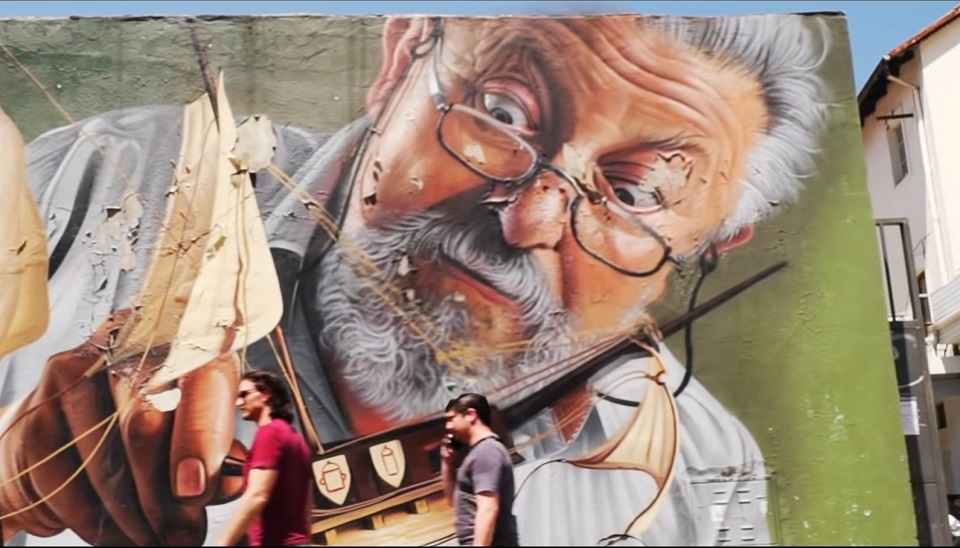
Rijeka: Top Ten Croatia 2020 Destination
In January, Rijeka was among the top 10 destinations of Croatia for tourist traffic. With outstanding tourism numbers, the city began 2020 by ranking second highest in the Kvarner area. In January, Rijeka reported 17,830 overnight stays, an increase of 11 percent over 2019.
In addition, the European organization European Best Destinations has put the Croatian port in the list of the top 10 European cities to be visited in 2020.
Most overnights were spent by guests from the surrounding region. On average they stayed three days, which is evidence that Rijeka is becoming a city break destination and more attractive to a growing number of foreign and domestic tourists.
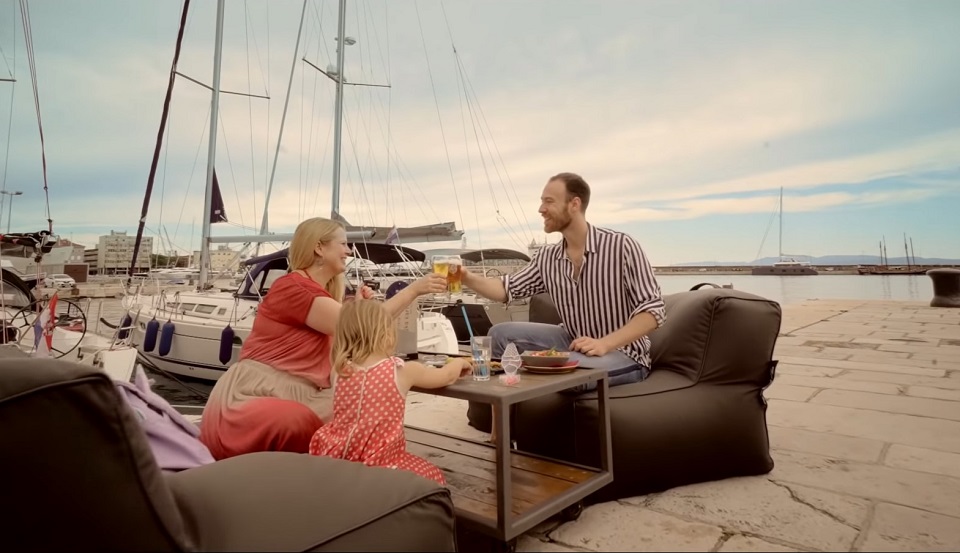
Greatest Growth: 19 to 30 Tourist Age Group
In January, tourists from the 19 to 30 age group spent the greatest number of overnights and accounted for 29.6 percent of total overnight stays.
Rijeka also entered the list of the top 10 destinations in Croatia in terms of tourist traffic in private accommodation and ranked fourth behind Zagreb, Split and Dubrovnik.
Follow our Travel page and this page for Total Croatia News articles about Rijeka European Capital of Culture. The website for the Rijeka Tourist Board can be accessed here, Croatian National Tourist Board here and Kvarner County Tourism Office here.

